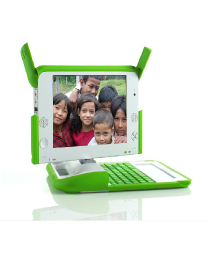| این صفحه ویکی پیدیا برای او ایل پی سی افغانستان هست. هدف ازین سازمان غیر منفعتی تولید یک محیطی برای او ایل پی سی ، و برداشت قدمهای ضروری در راه تیقن اینکه هر طفلی در افغانستان یک لپتاپی خواهد داشت و فعالیتهای محلی برای سازمان لپتاپ دات آرگ را فراهم میگرداند تا ما بتوانیم تغیراتی اساسی و انقالبیی را در سیستم تعلیمی اطفال و کودکان آورده بتوانیم. هدف ما فراهم آوری مجال کاوش، تجربه و اظهار خود اطفال بطور خودشان برای هر طفلی در افغانستان هست.
This is the wiki for the OLPC Afghanistan. The mission of this Not for Profit Organization is to create an environment for OLPC, take necessary steps to ensure every child in Afghanistan get the laptops and develop the Local Activities for OLPC laptops that could revolutionize how we educate the children. Our goal is to provide every children of Afghanistan with new opportunities to explore, experiment, and express themselves.
|
|
The purpose of this wiki is to both share information about the project and to solicit ideas and feedback.
Template:OLPCAfghanistan
'''REMARKS'''
How can we get a Project started in Afghanistan for remote villages where even the government employees (teachers) do not like to work? Can I help to get some project stated on private basis and not going through the government?
Yahya Malik
Kent, WA
yahyamalik19@hotmail.com
Afghanistan has received about 20000 100 B-2 machines and is working on getting them deployed as a pilot project. While it may not be fair to generalize that teachers do not like to work as there certainly are several dedicated teachers both in rural as well as urban areas but working with less than perfect conditions is an accepted challenge for all ICT projects. Hence, part of the project is to identify champions and generate support at the appropriate levels before and during deployment.
This is great news, I would be awaiting how the children would be responding to the pilot project, I hope and wish to be part of this as it would be a life changing event for a lot of children, I wonder how the MESH network would be supported here.
|
